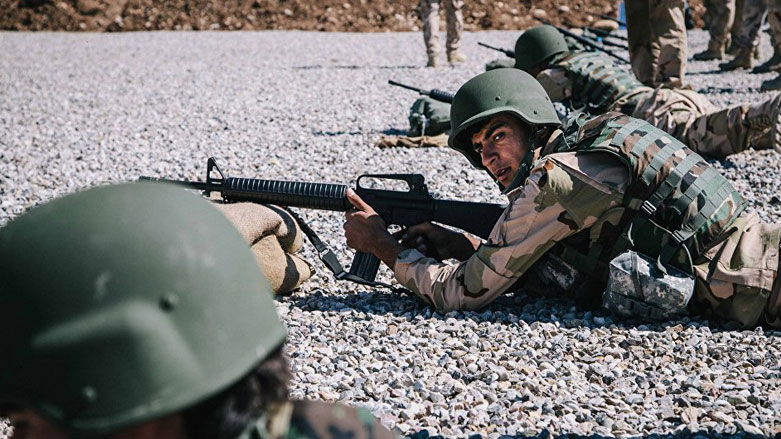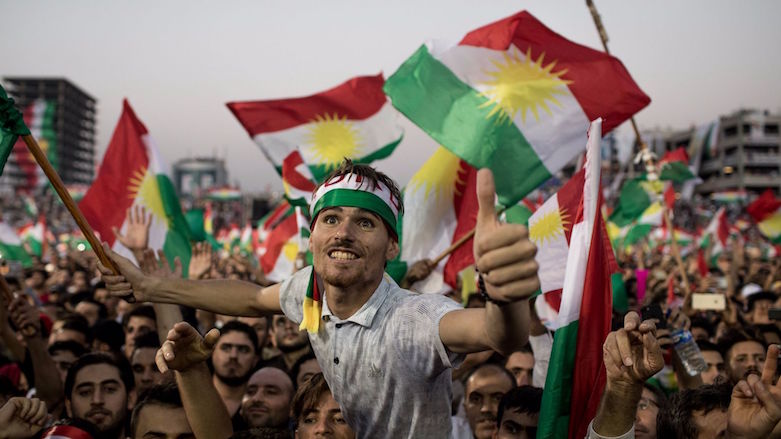US Congress authorizes continued support for Peshmerga

WASHINGTON DC, United States (Kurdistan 24) – In annual legislation establishing the Defense Department budget, the US Congress has agreed on continued support for the Peshmerga.
The proposed budget for the fiscal year 2018, as laid out in the final version of the National Defense Authorization Act (NDAA,) includes $365 million for stipends and other sustainment funding for the Peshmerga, which the Defense Department had requested.
The final version of the NDAA is a result of an agreement between the Senate Armed Services Committee (SASC) and the House Armed Services Committee (HASC) and, typically, differs from the language each committee first drafted. That language is agreed upon in conference between the two committees.
Notably, the final version of the NDAA states, “The conferees emphasize the significant contributions Kurdish security forces have made to countering [the Islamic State (IS)] and condemn Iranian interference in Iraqi affairs.”
“The conferees urge all parties to defuse tensions, refrain from further violence, and work peaceably to establish an equitable dispute resolution process that contributes to regional stability and the defeat of IS,” it continued.
The NDAA’s favorable attitude toward the Peshmerga and the Kurdistan Regional Government (KRG) reflects two key factors.
One is strong Congressional support for the Kurds and appreciation of the crucial role that the Peshmerga have played in fighting IS—first in holding the line and defending the Kurdistan Region and Iraq more broadly, after the Iraqi army collapsed in 2014; and then, afterwards, in working with the US-led coalition to bring IS to the verge of defeat.
The other crucial factor that explains the NDAA’s support for the Kurds is that the government of Iraqi Prime Minister Haidar al-Abadi significantly overplayed its hand in attacking Kirkuk and other disputed areas, particularly as it did so in alliance with Tehran, a knowledgeable Washington DC source explained to Kurdistan 24.
The original House version of the bill stated that aid to the KRG should be contingent on participation in a unified Iraq. Arguably, that language contributed to emboldening Baghdad. It is now gone from the NDAA.
As Baghdad’s assault on the Kurds has continued—whether militarily, politically, or economically—Congressional opposition to Baghdad’s actions, and to the Trump administration’s policy of tolerating such actions, has only grown.
Sen. John McCain (R, Arizona), the powerful chairman of the Senate Armed Services Committee, described Iraq’s Kurds in a New York Times op-ed as “some of America’s most trusted and capable partners in the region.”
“If Baghdad cannot guarantee the Kurdish people in Iraq the security, freedom and opportunities they desire, and if the United States is forced to choose between Iranian-backed militias and our longstanding Kurdish partners, I choose the Kurds,” McCain wrote.
Sen. Ted Cruz (R, Texas) expressed a similar view. “We must not permit our support or our military equipment to be used by Iranian-backed militias toward a new, ill-conceived operation that is counter to US interests.”
Other SASC members, including Jim Inhofe (R, Oklahoma), Lindsey Graham (R, South Carolina) and Richard Blumenthal (D, Connecticut), have all criticized Baghdad for its assault on the Kurds.
Members of the HASC have also expressed strong criticism of Baghdad and the US policy that tolerates its actions.
The State Department has the lead on Iraq policy and Rep. Duncan Hunter (R, California) skewered the Department, complaining at a Capitol Hill press conference that “at best,” the State Department has “been derelict in their duties.”
“At worst, they’ve been complicit in allowing the Iranians to take back what I and a lot of my brothers in arms fought for,” Hunter, an Iraq war veteran, said, as he called on President Donald Trump and Secretary of Defense Jim Mattis to take over Iraq policy.
Rep. Trent Franks (R, Arizona), also a HASC member and long-time friend of the Kurds, told Kurdistan 24 that if Abadi continues his assault on the Kurds, the US should inform him that “we will withdraw our support and that he will lose his position of authority.”
Asked about the State Department’s unwillingness to criticize Baghdad, Franks replied, “I think it is a very dangerous position to take.”
Given the strong Congressional criticism of US policy, it is somewhat surprising that the State Department has not done more to address it.
Paul Davis, formerly a Pentagon analyst on Kurdish affairs and now retired from the US Army, has long experience in Washington.
Davis described the State Department’s attitude as common to bureaucrats who lack sufficient political oversight.
They are “disrespecting” Congress because they think they are the professionals. Their attitude is, “We will make the final decisions,” Davis told Kurdistan 24.
In addition, there is an issue of hold-overs from the previous administration who remain invested in its “one-Iraq policy” and its accommodating posture toward Iran.
Editing by Nadia Riva

